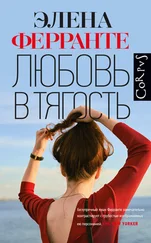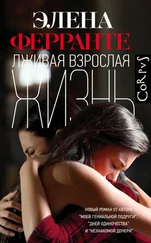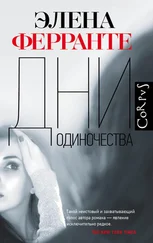I didn’t sleep well, at school I was often scolded because I was distracted. The bracelet came up again when I was sure that my parents had forgotten about it.
“Your father doesn’t know anything about it, either.”
“About what?”
“The bracelet Aunt Vittoria says she gave you.”
“I think it’s a lie.”
“That’s for certain. Anyway, if you want to wear one, look through my things.”
I really did go and rummage through her jewelry, even if I knew it by heart—I had played with it since I was three or four. The objects didn’t have much value, especially the two bracelets she had: one gold-plated with little angel charms, the other silver with blue leaves and pearls. As a child I loved the first and ignored the second. But lately I’d grown to really like the one with the blue leaves, even Costanza had once praised its craftsmanship. So, to let it be understood that I wasn’t interested in Vittoria’s gift, I began to wear the silver bracelet at home, at school, and when I saw Angela and Ida.
“It’s so pretty,” Ida exclaimed once.
“It’s my mother’s. But she said I can wear it when I want.”
“My mother doesn’t let us wear her jewelry,” said Angela.
“What about that?” I asked, indicating a gold necklace she was wearing.
“It’s a present from our grandmother.”
“Mine,” said Ida, “I got from a cousin of our father’s.”
They often spoke of generous relatives, some of whom they were very fond of. I had had only the nice grandparents in Museo, but they were dead and I had a hard time remembering them, so I had often envied Angela and Ida their relatives. But now that I had established a relationship with Aunt Vittoria it occurred to me to say:
“My aunt gave me a bracelet much nicer than this.”
“Why don’t you ever wear it?”
“It’s too precious, my mother doesn’t want me to.”
“Show it to us.”
“Yes, sometime when my mother’s out. Do they make you hot chocolate?”
“My father has let me taste the wine,” said Angela.
“Me, too,” said Ida.
I explained proudly:
“My grandmother made me hot chocolate when I was little and even until right before she died: not normal chocolate, my grandmother’s was all frothy, really good.”
I had never lied to Angela and Ida, that was the first time. I discovered that lying to my parents made me anxious, while lying to Angela and Ida was fun. They had always had toys more exciting than mine, clothes more colorful, family stories more surprising. Their mother, Costanza, who came from a family of goldsmiths from Toledo, had boxes full of jewelry, all of it valuable, countless gold and pearl necklaces, earrings, and piles of bracelets and bangles, a couple that she wouldn’t let them touch, and one that she was extremely fond of and wore often, but for the rest—for the rest she had always let them play with it, and I was allowed to play with it, too. So as soon as Angela stopped being interested in hot chocolate—that is, almost immediately—and wanted some more details about the very precious piece of jewelry from Aunt Vittoria, I described it in great detail. It’s pure gold with rubies and emeralds, it sparkles—I said—like the jewelry you see in movies and on television. And just as I was talking about the truth of that bracelet, I couldn’t resist and also claimed that once I had looked at myself in the mirror without anything on, only some earrings and a necklace of my mother’s, and the marvelous bracelet. Angela looked at me enchanted, Ida asked if I had at least left my underpants on. I said no, and the lie gave me such relief that I imagined if I really had done it I would have tasted a moment of absolute happiness.
So one afternoon, to prove that, I transformed the lie into reality. I undressed, put on some of my mother’s jewelry, looked in the mirror. But it was a painful sight, I saw myself as a small, faded green plant, debilitated by too much sun, sad. Even though I had made myself up carefully, what an insignificant face I had, the lipstick was an ugly red stain on a face that looked like the gray bottom of a frying pan. I tried to understand, now that I had met Vittoria, if there really were points of contact between us, but the more I persisted the more useless it was. She was an old woman—at least in the eyes of a thirteen-year-old—I a young girl: too much disproportion between the bodies, too great an interval of time between my face and hers. And where in me was that energy of hers, the warmth that lit up her eyes? If I was really starting to look like Vittoria, my face lacked the essential, her force. So on the wave of that thought, while I was comparing her eyebrows with mine, her forehead with mine, I realized that I wished she really had given me a bracelet, and I felt that if I had it now and wore it, I would feel more powerful.
That idea immediately infused me with a cheering warmth, as if my depressed body had suddenly found the right medicine. Certain words that Vittoria had said before we parted, walking me to the door, came to mind. Your father—she was angry—has deprived you of a big family, of all of us, grandparents, aunts and uncles, cousins, because we’re not intelligent and educated like him; he cut us off with a hatchet, he forced you to grow up in isolation, for fear we’d ruin you. She spewed bitterness, and yet those words now brought me relief, I repeated them in my mind. They affirmed the existence of a strong and positive bond, they demanded it. My aunt hadn’t said: you have my face or at least you look something like me; my aunt had said: you don’t belong only to your father and mother, you’re mine, too, you belong to the whole family that he came from, and anyone who belongs to us is never alone, is charged with energy. Wasn’t it because of those words that, after some hesitation, I had promised her that on May 23rd I would skip school and go with her to the cemetery? Now at the idea that, at nine in the morning on that day, she would wait for me in Piazza Medaglie d’Oro beside her old dark-green Fiat 500—so she had told me imperatively, saying goodbye—I began to cry, to laugh, to make terrible faces in the mirror.
4.
Every morning the three of us went to school, my parents to teach, I to learn. My mother usually got up first: she needed time to make breakfast, to dress and put on her makeup. My father instead got up only when breakfast was ready, because as soon as he opened his eyes he started reading, and writing in his notebooks, and he continued even in the bathroom. I got up last, although—ever since that story began—I’d demanded to do as my mother did: wash my hair frequently, put on makeup, choose with care everything I wore. The result was that both of them were continuously rushing me: Giovanna, how far along are you; Giovanna, you’ll be late and we’ll be late. And meanwhile they rushed each other. My father pressed: Nella, hurry, I need the bathroom, my mother answered calmly, it’s been free for half an hour, you haven’t gone yet? But those were not the mornings I preferred. I loved the days when my father had to be at school for the first period and my mother for the second or third or, even better, when she had the day free. Then she simply made breakfast, from time to time called, Giovanna, hurry up, devoted herself serenely to her many domestic duties and the stories she corrected and often rewrote. On those days, everything was easier for me: my mother washed last and I had more time in the bathroom; my father was always late and, apart from the usual jokes with which he kept me laughing, left in a hurry, dropped me at school, and drove off without the watchful lingering of my mother, as if I were grown up and could face the city by myself.
I did some calculations and discovered with relief that the morning of the 23rd was of this second type: it would be my father’s turn to take me to school. The night before I got out my clothes for the next day (I eliminated pink), something that my mother always urged me to do but that I never did. And I woke up very early in the morning, in a nervous state. I ran to the bathroom, made myself up very carefully, put on, after some hesitation, the bracelet with blue leaves and pearls, appeared in the kitchen when my mother had barely got up. How in the world are you already up, she asked. I don’t want to be late, I said, I have Italian homework, and, seeing that I was agitated, she went to hurry my father.
Читать дальше
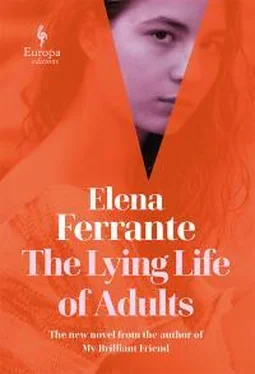
![Элена Ферранте - История о пропавшем ребенке [litres]](/books/32091/elena-ferrante-istoriya-o-propavshem-rebenke-litres-thumb.webp)
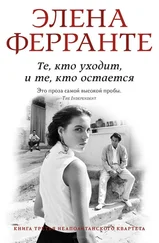
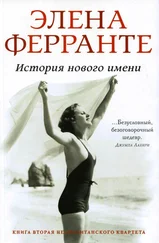
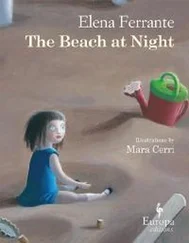
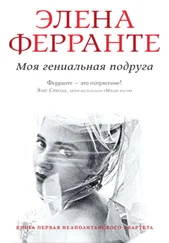
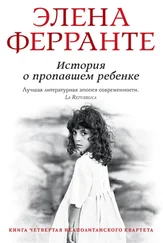
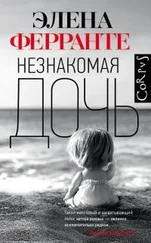
![Элена Ферранте - Дни одиночества [litres]](/books/404671/elena-ferrante-dni-odinochestva-litres-thumb.webp)
